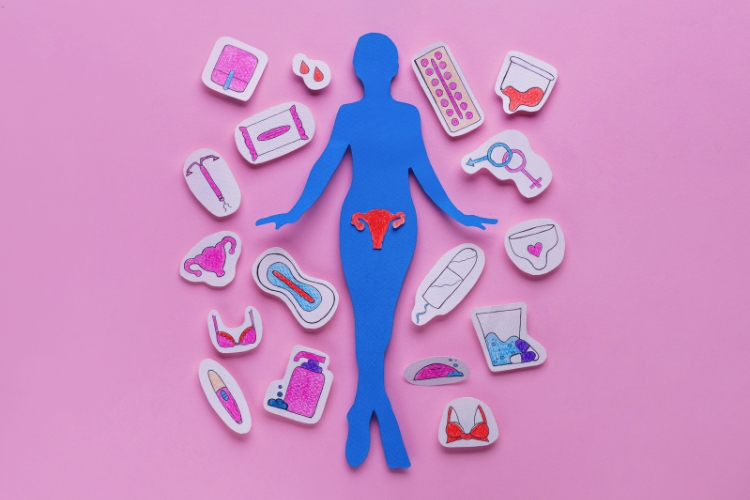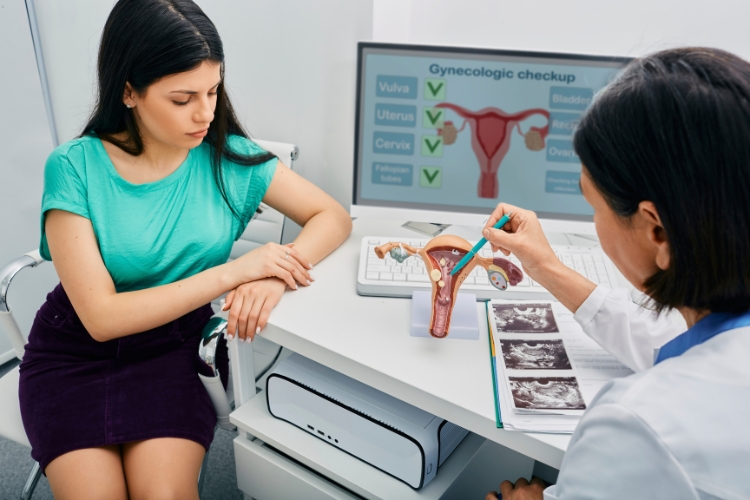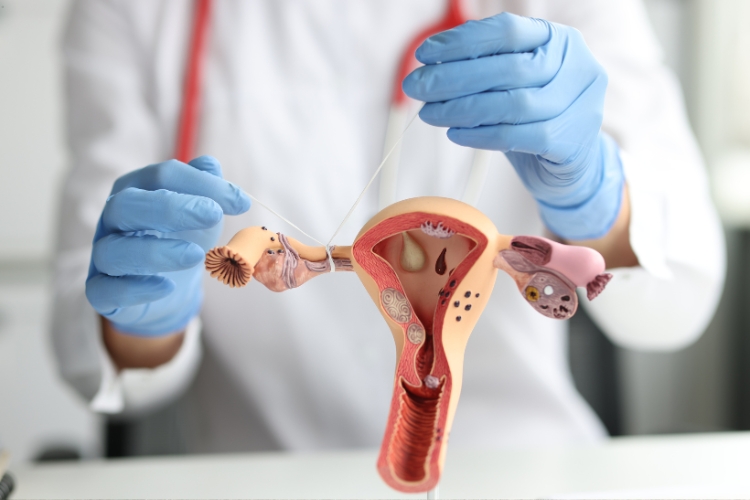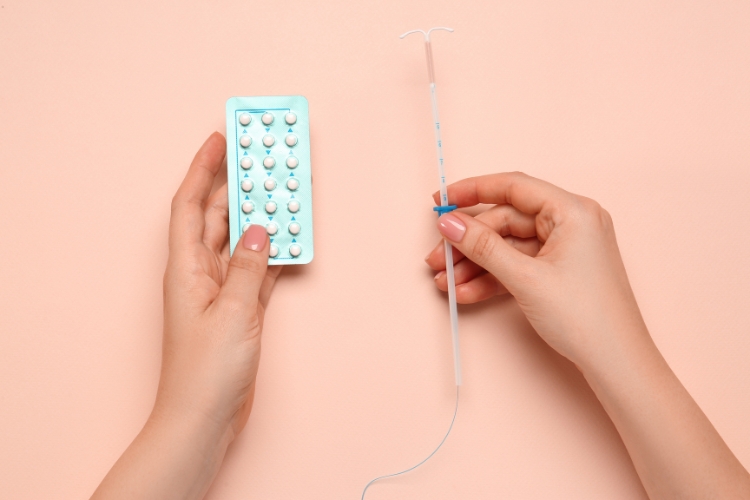As women, our reproductive health plays a vital role in our overall well-being. From menstruation to pregnancy and beyond, the foods we consume can have a significant impact on our bodies and our ability to thrive.
In this blog article, we’ll explore the essential nutrients, vitamins, and minerals that support women’s reproductive health, and provide practical tips to incorporate them into your daily diet.
Key Takeaways:
- Maintain a balanced, nutrient-rich diet to support your reproductive health, focusing on folate, iron, calcium, omega-3s, zinc, and vitamins D and E.
- Incorporate reproductive-friendly foods like leafy greens, fatty fish, legumes, nuts and seeds, dairy, eggs, and whole grains into your regular meals.
- Address common reproductive health concerns, such as menstrual irregularities, infertility, endometriosis, and menopause, through targeted dietary changes and supplementation when necessary.
- Complement your nutritional efforts with a healthy lifestyle, including maintaining a healthy weight, managing stress, staying physically active, and avoiding harmful substances.
- Consult with your healthcare provider to ensure you’re meeting your individual reproductive health needs through diet and supplementation.

The Importance of Reproductive Health
Our reproductive health encompasses a wide range of physiological functions, including the menstrual cycle, fertility, pregnancy, and menopause. Maintaining a healthy reproductive system is crucial for women’s overall physical and emotional well-being. Proper nutrition can help regulate hormonal imbalances, reduce the risk of reproductive disorders, and support a healthy pregnancy.
Key Nutrients for Reproductive Health
To keep our reproductive systems functioning optimally, we need to ensure we’re getting the right balance of essential nutrients. Here are some of the most important ones to focus on:
1. Folate (Vitamin B9)
Folate is a vital nutrient for women of childbearing age, as it plays a crucial role in the development of the fetus during pregnancy. It helps prevent neural tube defects, supports the production of red blood cells, and may even reduce the risk of certain types of cancer.
Food Sources: Dark leafy greens, citrus fruits, beans, lentils, fortified cereals.
2. Iron
Iron is essential for the production of hemoglobin, which carries oxygen throughout the body. Women of childbearing age are at a higher risk of iron deficiency, particularly during menstruation and pregnancy.
Food Sources: Red meat, poultry, seafood, lentils, spinach, tofu.
3. Calcium
Calcium is crucial for maintaining strong bones and teeth, but it also plays a role in the healthy functioning of the reproductive system. It can help regulate the menstrual cycle and may reduce the risk of certain reproductive cancers.
Food Sources: Dairy products, leafy greens, fortified plant-based milk, tofu, and sardines.

4. Omega-3 Fatty Acids
Omega-3 fatty acids, such as EPA and DHA, have anti-inflammatory properties and can help alleviate symptoms of premenstrual syndrome (PMS) and endometriosis.
Food Sources: Fatty fish (salmon, mackerel, sardines), walnuts, flaxseeds, chia seeds.
5. Zinc
Zinc is essential for the production of reproductive hormones, as well as the proper functioning of the reproductive organs. It may also help reduce the risk of certain reproductive cancers.
Food Sources: Oysters, red meat, poultry, beans, nuts, seeds.
6. Vitamin D
Vitamin D plays a crucial role in regulating the immune system, which is essential for maintaining a healthy reproductive system. It may also help improve fertility and reduce the risk of certain reproductive disorders.
Food Sources: Fatty fish, egg yolks, fortified dairy products, and exposure to sunlight.
7. Vitamin E
Vitamin E is an antioxidant that can help reduce the risk of certain reproductive disorders, such as endometriosis and polycystic ovarian syndrome (PCOS).
Food Sources: Nuts, seeds, leafy greens, plant oils.

Incorporating Reproductive-Friendly Foods into Your Diet
To ensure you’re getting the right balance of nutrients for your reproductive health, try incorporating the following foods into your daily meals:
| Food | Key Nutrients |
|---|---|
| Leafy Greens (Spinach, Kale, Collard Greens) | Folate, Iron, Calcium, Vitamin E |
| Fatty Fish (Salmon, Mackerel, Sardines) | Omega-3 Fatty Acids, Vitamin D |
| Legumes (Lentils, Beans, Chickpeas) | Folate, Iron, Zinc |
| Nuts and Seeds (Walnuts, Flaxseeds, Chia Seeds) | Omega-3 Fatty Acids, Zinc, Vitamin E |
| Dairy Products (Milk, Yogurt, Cheese) | Calcium, Vitamin D |
| Eggs | Vitamin D, Zinc |
| Whole Grains (Quinoa, Brown Rice, Oats) | Zinc, Vitamin E |
Remember to aim for a balanced, varied diet that incorporates a wide range of these reproductive-friendly foods throughout the day and week.

Addressing Common Reproductive Health Concerns
1. Menstrual Irregularities
If you’re experiencing irregular, painful, or heavy periods, certain nutrients can help. Increase your intake of omega-3 fatty acids, vitamin B1 (thiamine), and magnesium, which can help alleviate cramps and regulate the menstrual cycle.
2. Infertility and Pregnancy Planning
For women trying to conceive, ensuring adequate intake of folate, zinc, and antioxidants like vitamin C and E can improve fertility and support a healthy pregnancy.
3. Endometriosis and PCOS
Women with endometriosis or PCOS may benefit from an anti-inflammatory diet rich in omega-3s, and antioxidants, and low in processed foods.
4. Menopause
During the menopausal transition, calcium, vitamin D, and phytoestrogens (found in soy and other plant-based foods) can help manage symptoms like hot flashes and bone loss.

Supplements: When and How to Use Them
While a balanced, nutrient-rich diet should be the foundation of your reproductive health, there may be times when supplements can be beneficial. Consult with your healthcare provider to determine if you need additional support, such as:
- Folic acid supplements for women planning a pregnancy
- Iron supplements for those with iron deficiency
- Calcium and vitamin D supplements for menopausal women
- Omega-3 supplements for those with endometriosis or PCOS
Always choose high-quality, third-party-tested supplements and follow the recommended dosages to avoid potential side effects.

Lifestyle Factors and Reproductive Health
In addition to a nutrient-rich diet, other lifestyle factors can also impact your reproductive health:
- Maintain a healthy body weight: Excess weight can contribute to hormonal imbalances and increase the risk of certain reproductive disorders.
- Manage stress: Chronic stress can disrupt the menstrual cycle and impact fertility. Practice stress-reducing activities like yoga, meditation, or deep breathing.
- Stay physically active: Regular exercise can help regulate the menstrual cycle, improve fertility, and alleviate symptoms of reproductive conditions.
- Avoid harmful substances: Smoking, excessive alcohol consumption, and exposure to environmental toxins can negatively impact reproductive health.
Conclusion
Your reproductive health is a vital part of your overall well-being. By nourishing your body with the right balance of nutrients, you can support the proper functioning of your reproductive system, reduce the risk of reproductive disorders, and promote a healthy pregnancy and menopause.
Remember to always consult with your healthcare provider for personalized advice and to address any specific concerns you may have.
FAQs:
- What are the key nutrients for women’s reproductive health?
The most important nutrients for reproductive health include folate, iron, calcium, omega-3 fatty acids, zinc, and vitamins D and E. These nutrients play crucial roles in regulating the menstrual cycle, supporting fertility, and maintaining a healthy pregnancy and menopause. - How can I incorporate reproductive-friendly foods into my diet?
Aim to include a variety of leafy greens, fatty fish, legumes, nuts and seeds, dairy products, eggs, and whole grains in your meals and snacks. These foods are rich in the essential nutrients that support reproductive health. - Can supplements help with specific reproductive health concerns?
Yes, supplements can be beneficial in certain situations, such as folic acid for women planning a pregnancy, iron for those with deficiency, and calcium and vitamin D for menopausal women. Always consult your healthcare provider before starting any supplement regimen. - How do lifestyle factors impact reproductive health?
Maintaining a healthy body weight, managing stress, staying physically active, and avoiding harmful substances like smoking and excessive alcohol can all contribute to better reproductive health. These lifestyle factors can help regulate the menstrual cycle, improve fertility, and alleviate symptoms of reproductive conditions.

